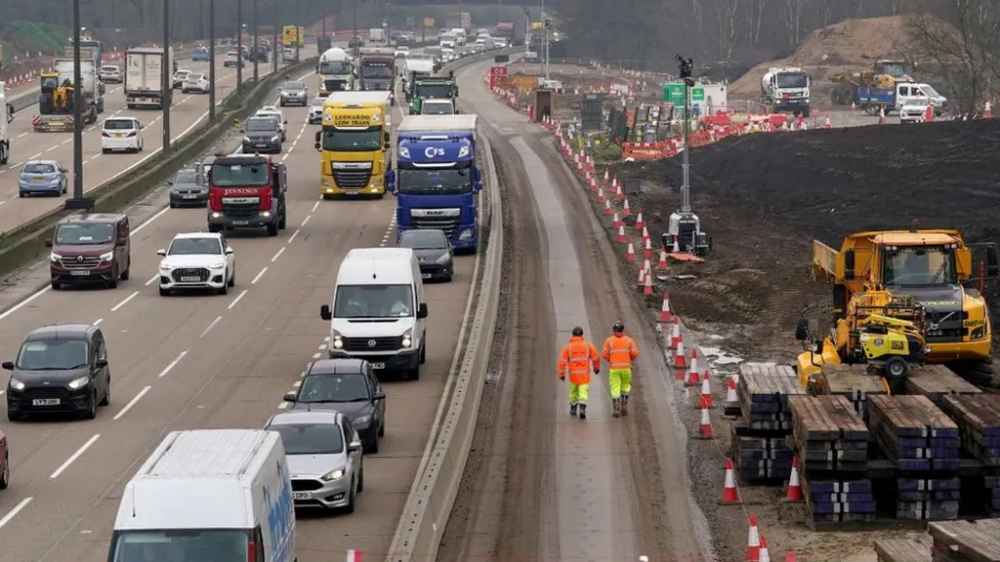As a vital artery of the UK’s road network, the M25 motorway serves as a lifeline for thousands of motorists each day. However, a scheduled closure of a significant section of the M25 in Surrey has sparked fears of unprecedented gridlock, leaving commuters and travelers scrambling to find alternative routes and transportation options.
The closure, spanning a five-mile stretch along both carriageways between junctions 10 and 11, marks the first time in the M25’s history that all lanes have been shut down for an entire weekend. Initiated to facilitate the demolition of a bridge and the installation of a new gantry as part of the junction 10 improvement scheme, this disruption is expected to have far-reaching consequences for drivers and commuters alike.
With approximately 270,000 drivers utilizing this stretch of the M25 on a typical weekday, the closure presents a monumental challenge for traffic management authorities. National Highways, the agency responsible for overseeing the project, has issued stern warnings to motorists, urging them to reconsider their travel plans and only use the M25 if absolutely necessary.
Jonathan Wade, the project lead, emphasized the severity of potential disruptions, stating that without mitigation measures, drivers could face delays of up to five hours. This dire forecast has prompted authorities to advise motorists to explore alternative modes of transportation, such as trains, or to avoid the area entirely.
The ramifications of the M25 closure extend beyond mere inconvenience, affecting various aspects of daily life and commerce. School sports fixtures have been postponed, and healthcare facilities like St Peter’s Hospital in Chertsey have advised patients to limit non-essential visits. The closure also poses challenges for travelers heading to Gatwick and Heathrow Airports, Channel ports, and other destinations in the London area.
As drivers grapple with the prospect of navigating through unprecedented traffic congestion, experts and local officials offer guidance on mitigating the impact of the closure. Steve Gooding, director of the RAC Foundation, advises travelers to plan ahead, allowing ample time for their journeys or considering alternative modes of transportation. He stresses the importance of flexibility and strategic planning in adapting to the evolving traffic conditions.
Local council representatives echo these sentiments, expressing concerns about potential gridlock and urging residents to exercise patience and foresight. Tahir Aziz of Woking Borough Council and Malcolm Cressey of Runnymede Borough Council underscore the need for contingency planning and collaboration among stakeholders to mitigate disruptions and minimize inconvenience for residents and commuters.
The closure of the M25 represents a significant test of resilience and adaptability for drivers and transportation authorities alike. As motorists navigate through the challenges posed by this unprecedented disruption, effective communication, proactive planning, and a spirit of cooperation will be essential in ensuring the smooth flow of traffic and minimizing the impact on communities and businesses.
In the face of adversity, drivers are called upon to exercise patience, flexibility, and caution as they navigate through unfamiliar routes and traffic conditions. By working together and embracing innovative solutions, commuters and travelers can overcome the challenges posed by the M25 closure and emerge stronger and more resilient in the face of future disruptions.
